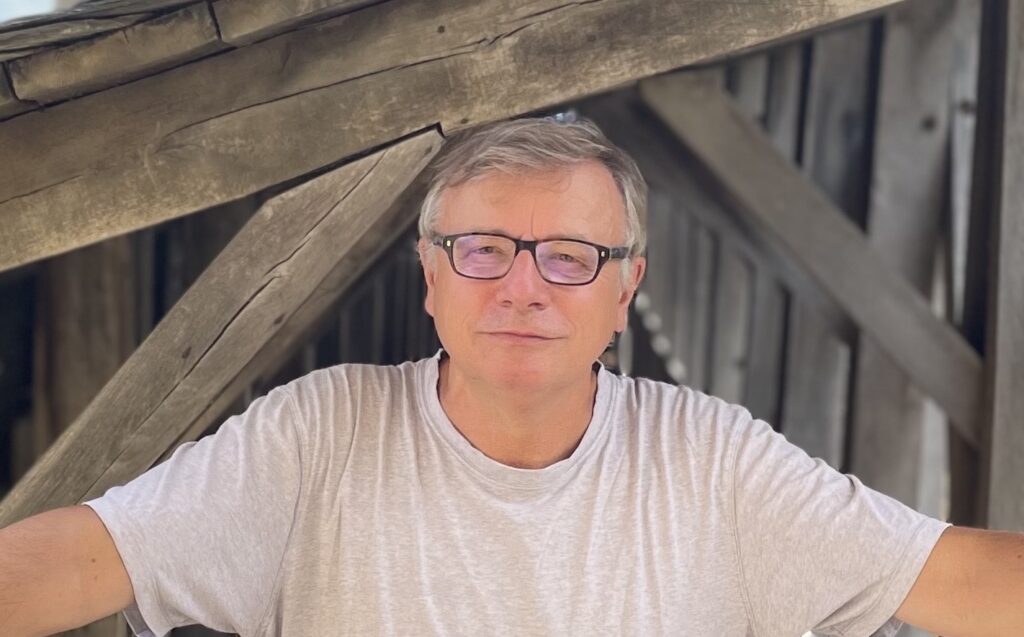
Contact
mail : eric.crubezy@univ-tlse3.fr
Eric Crubézy in Google scholar
Full CV
Doctor of Medicine (MD), Montpellier University – Doctor of Science (PhD in anthropobiology), Bordeaux University – Graduate of the School of Higher Studies in Social Sciences, Paris University (EHESS) – Study and Research Supervisor for Human Biology (HDR) – Award for Scientific Excellence, University Laureate – Professor of Exceptional class – Director of the International Laboratory between Russian federation and France «Coevolution between Men and Environment in North-Eastern Siberia.”
Biosketch
His research program focuses on the interaction between genes and culture, and more specifically using data relevant to human biology to shed new light on human history: population settlement in the Holocene, the societies of the past and their funerary complexes. The program lies at the interface between the human and social sciences, and the life and environmental sciences. Research draws on excavations, the study of funerary complexes from different cultures and ecologies, and developing methods to study the biology of past populations. During the past twenty years, a particular effort has been made on generating genetic and paleogenetic data, in order to compare ancient and modern populations with similar markers. The specificity of his work is related to the definition of the research problematic and then the coordination of this research from the fieldwork phase until the laboratory analysis. His fieldworks are undertaken in regions that are culturally and ecologically very different (Mediterranean basin, Egypt, Siberia, Mongolia, Andes), in order to explore different funeral practices and the differential conservation of DNA and organic remains.
Selected Books
- Aux origines des rites funéraires : voir, cacher, sacraliser. É Crubézy, Odile Jacob. 2019
- Demographic and epidemiological transition before the pharaons. E Crubézy (dir). French Institute of Oriental Archaeology. 2017
- Vainqueurs ou vaincus ? L’énigme de la Iakoutie. É Crubézy, D Nikolaeva. Odile Jacob. 2017
- Le premier empire des steppes en Mongolie. P.-H. Giscard , T. Turbat et E. Crubézy. Edts Faton._2013
- La mort, les morts et la ville (Montpellier –Xe-XVIe siècles). E. Crubézy, S. Duchesne, C. Arlaud. Edts Errance. 2006
Selected publications
- Zvénigorosky V, Duchesne S, Romanova L, Gérard P, Petit C, 2020. .The genetic legacy of legendary and historical Siberian chieftains. Communications biology 3 (1), 1-9.
- Romanova L, Stépanoff C, Telmon N, Crubézy E. 2020. Health access inequities and magic medicine: the first ancient evidence? The Lancet 395 (10233), 1343-1344.
- Biagini P, Thèves C, Balaresque P, Geraut A, Cannet C, et al. 2012. Variola virus in a 300-year-old Siberian mummy. New England Journal of Medicine,367 (21), 2057-9.
- Lacan M, Keyser C, Ricaut FX, Brucato N, Duranthon F, et al. 2011. Ancient DNA reveals male diffusion through the Neolithic Mediterranean route. Proceedings of the National Academy of Sciences 108 (24), 9788-9791.
- Crubézy E, Murail P, Girard L, Bernadou JP. 1998. False teeth of the Roman world Nature 391 (6662), 29-29.